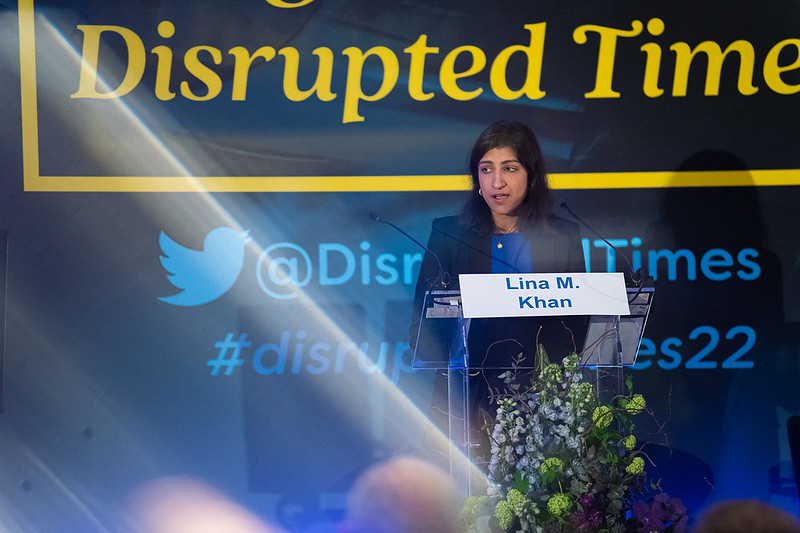
FTC Chair Khan Ignores Experts in Pursuit of Politically Motivated Suit Against Meta
Since President Biden appointed radical academic Lina Khan as Chair of the Federal Trade Commission, she has embarked on an ambitious, aggressive agenda to weaponize antitrust law against big businesses solely for the sin of being successful. In pursuit of this agenda, Khan has torn away at the independence and integrity of the FTC, and staff morale has hit rock bottom. Just when it seems that Khan will back off of her aggressive tactics, she makes even bolder steps forward to fulfill her anti-business agenda.
Lina Khan recently spearheaded an effort to block Meta’s acquisition of Within Unlimited, Inc. Recent reports, however, indicate that Khan brought this lawsuit in defiance of the recommendations of expert staffers at the FTC that warned her against pursuing this suit. The Bloomberg report highlighted that “Agency leadership has been reluctant in the past to counter a recommendation from staff lawyers and economists, whose job it is to provide a technical assessment of whether proposed deals are anticompetitive and whether the agency has the elements to build a winning case.”
Lina Khan is not an economist and has never tried a case in a courtroom beyond her work as the Chair of the FTC. Khan may have academic theories about the way she believes that antitrust cases ought to be tried, but theories do not translate to good litigation. Instead, Khan is wasting governmental resources to try a case that is likely dead-on-arrival. Khan seems to believe that she can change the law by shoving her conception of what the law ought to be down the throat of the American judicial system. Unfortunately for her, the Constitution never intended for the head of executive agencies to have the power to unilaterally change laws based on their whims.
Khan’s choice to chase this foolhardy lawsuit comes at the expense of taxpayer dollars and FTC resources. Instead of using her agency’s powers to prioritize cases in which the agency could win and reduce consumer harms, she is wasting resources on attempting to convince the court to block an acquisition on the hypothetical grounds of potential future harm. If Khan had listened to her advisors, she may be aware that precedent already exists for trying a case based on this flimsy legal theory. At least two cases of this nature have already failed in the courts.
There is no reason to believe that somehow this case will succeed. However, the American people have good reason to be frustrated that a governmental agency that is asking for more money and staffers has decided to use their supposedly insufficient resources on a meritless, likely impossible to win lawsuit.
The way that the FTC has chosen to use its current resources ought to concern legislators. Giving into the FTC’s requests for more resources seems like quite a ridiculous idea based on the wasteful, illogical way in which the current resources are being utilized. A parent giving money to a child to spend on books, only for the child to spend it on ice cream, would seem quite foolish if they decided to give the child more money to spend on books. Our government ought not function like a gullible parent. It must hold Khan accountable for these irresponsible practices and not increase the FTC’s budget until her utilization of current resources begins to serve the interests of the public.
Photo Credit: E. Gillet, CC 1.0 Universal, https://www.flickr.com/photos/195341417@N07/51982116360/, via Flickr
